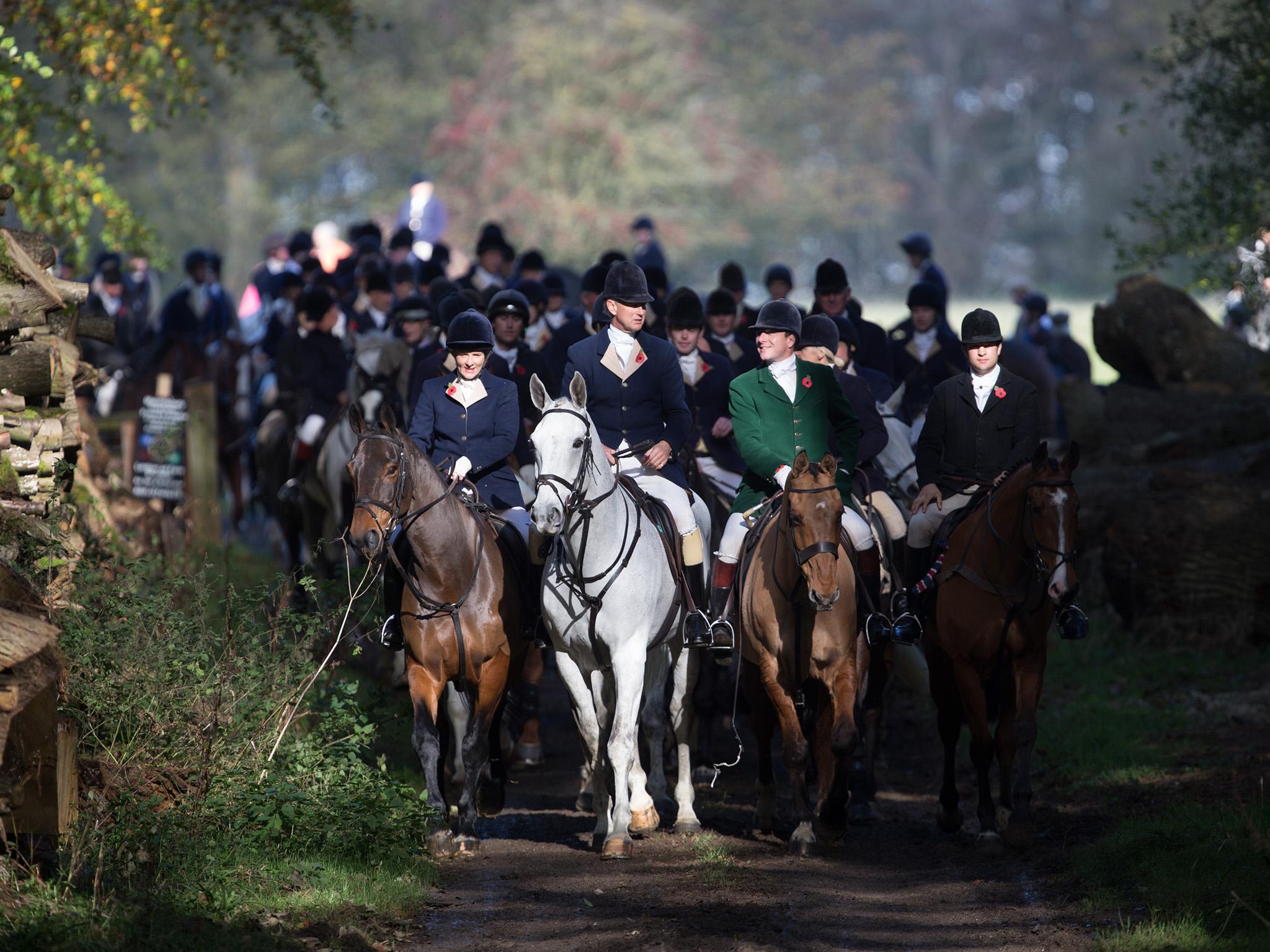Hundreds of illegal hunts took place in British countryside last autumn, animal rights group says
Reports 'just tip of iceberg', says the League Against Cruel Sports

A leading animal rights group has received 550 reports of illegal hunts in the British countryside since the start of the season last autumn.
Anti-hunting group the League Against Cruel Sports said the recorded instances were “just the tip of the iceberg”, suggesting that thousands of foxes, hares and deer were killed illegally every year.
Hunting wild animals with dogs was outlawed in England and Wales in 2004 after animal welfare campaigners argued chasing the wildlife caused unnecessary suffering.
But traditional hunts, where hounds follow a scent trail rather than an animal, are still permitted.
Chris Luffingham, League Against Cruel Sports director of campaigns, said: “Despite hunting being banned 13 years ago, it seems very little has changed, with hunts targeting and killing animals and deceiving the British public about their activities with excuses like ‘trail’ hunting.
“Sadly these reports are just the tip of the iceberg – with more than 300 hunts on the British mainland still in existence and actively targeting wildlife, we estimate that thousands of animals are still being killed every year.”
The group received 405 reports of illegal hunting activity over the course of the hunting season which began at the start of November and is nearing its end.
A further 145 reports of “hunt havoc” were received. These incidents included packs of dogs killing domestic pets, trespassing through people’s gardens and allotments and running onto busy roads and railway lines.
The figures include one incident where hunting dogs chased a deer and fox into a cat sanctuary, causing 60 cats to scatter. Five never returned and are thought dead.
Mr Luffingham continued: “A new term entered the English language after the hunting ban of 2004 – ‘trail’ hunting. This was touted by the hunts as a new pastime which involved following an animal-based scent rather than live quarry, but which mimicked traditional hunting as much as possible. In fact, it so closely mimics hunting; it has become clear it is a deception and cover-up for illegal hunting activity.
“Hunts rarely lay a trail and even when they do it is a sham to mask their illegal hunting. Why are hunts routinely seen crossing railway lines, on busy roads or in people’s gardens if they are laying a trail? Why are they regularly being seen chasing wildlife? Why are there so many reports of animal deaths at the hands of the hunts?”
A poll by The Independent conducted in December last year showed 85 per cent of the public supported maintaining the current ban on hunting with hounds.
“The public would be horrified if they knew what was really going on in the British countryside and the cruelty and dreadful death toll the hunts are inflicting on wildlife,” Mr Luffingham said.
“We are calling on landowners to ban hunts from their land and we need to strengthen the Hunting Act and bring in tougher sentencing to act as a deterrent.”
“The good news is the world is changing – advances in smart phone video cameras, new monitoring groups on Facebook, and the development of our Animal Crimewatch team, mean the public can report the hunts’ activities and we can go about bringing them to task. It’s time to get the hunts, not animals, on the run. The hunts are living on borrowed time.”
Theresa May pledged to hold a free vote on fox hunting in the House of Commons during the snap election in 2017. But after the Conservative Party lost its majority in the poll, she dropped the idea.
A Defra spokesperson said hunting animals with dogs was illegal under the Hunting Act 2004, adding that anyone who has evidence of illegal hunting should report it to the police.
“Under the Animal Welfare Act 2006 it is also an offence to cause unnecessary suffering to an animal under the control of man, and offenders can be punished with a prison sentence, an unlimited fine or be banned from keeping an animal,” the spokesperson said.
“We have announced plans to increase maximum sentences for animal cruelty from six months to five years in prison.”
Subscribe to Independent Premium to bookmark this article
Want to bookmark your favourite articles and stories to read or reference later? Start your Independent Premium subscription today.

Join our commenting forum
Join thought-provoking conversations, follow other Independent readers and see their replies